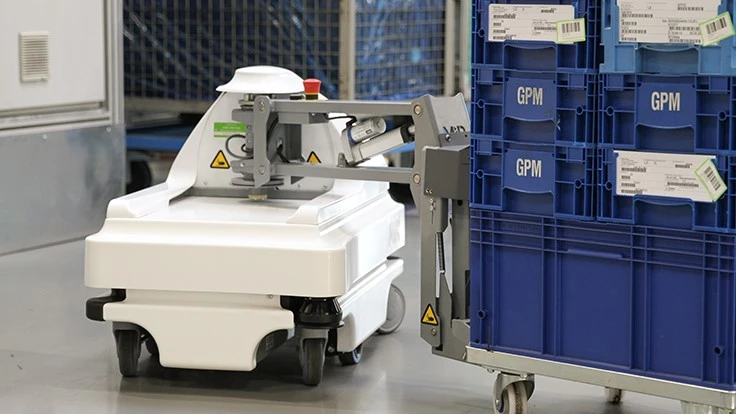
MIR
Mobile Industrial Robots launched its mobile robot leasing program. Often referred to as robots as a service (RaaS), leasing lets companies of any size deploy mobile robot solutions with low (or no) upfront costs and low monthly payments, lowering financial barriers for investing in autonomous mobile robots (AMRs) and gives customers a near immediate return on investment (ROI).
“While sales of our mobile robots continue to thrive, many companies still prefer to lease their logistics equipment rather than make a capital investment upfront,” says Thomas Visti, CEO, MiR. “Leasing the robots becomes an operational expenditure instead, enabling our customers to quickly get started reaping the benefits AMRs offer as they automate monotonous, repetitive, and often injury-prone manual material transportation.”
With MiR Finance, customers get the chance to lease the full package, including the robots, integration, and top modules for the robots. The monthly cost of the leasing depends on the type of robot and the length of the leasing period.
Flexible terms, maintenance provided
MiR’s distributor network will be working with a third-party company to provide lease programs for the customer. The leasing terms are flexible, with 48 months being a popular option. MiR’s distributors will continue to be responsible of first-level support, service, and maintenance. In this way, not much will change for the end-customers, that will now have one more option in terms of payment for their robots, while the usual benefits from MiR’s global reach and local support will continue.
RaaS market grows
ABI Research, a market-foresight advisory firm providing strategic guidance on the most compelling transformative technologies, last year estimated that the installed base for RaaS will grow from 4,442 units in 2016 to 1.3 million in 2026. The yearly revenue from RaaS providers is expected to increase from $217 million in 2016 to nearly $34 billion in 2026.
Latest from Today's Medical Developments
- German robotics and automation in a downturn
- Blueshift’s AeroZero
- November USMTO grow from October
- Platinum Tooling’s custom and special tooling
- Top 5 global robotics trends 2025
- Accumold’s micro molding innovations
- Methods Machine Tools, Multiaxis, announce AI solution investment
- MGS to showcase global expansion and healthcare CDMO expertise





